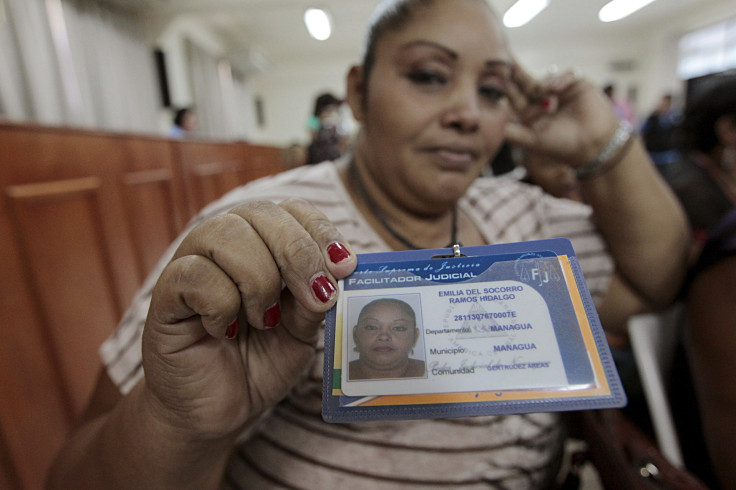Nicaragua Rolls Out Program To Train Sex Workers As Conflict Mediators

A small group of women in Nicaragua this month became the first in the world to assume the simultaneous job titles of sex worker and judicial mediator.
They’re part of a landmark program Nicaragua is rolling out to bring sex workers even closer to the judicial system. Prostitution is already legal, but authorities say including sex workers in mediations can help them defend other sex workers and members of marginalized communities against abuse.
Eighteen sex workers received accreditation as judicial facilitators from Nicaragua’s Supreme Court this month, following several months of training. The government first announced the program in March, and the plan is to eventually expand the group to 60 sex workers.
The country has been running its judicial facilitator program since 1998. In the program volunteers intervene in low-level conflicts and incidents that don’t rise to felony levels. That includes “neighborhood disputes, dog bites, small loans and mild domestic violence cases,” Nicaragua’s Court of Justice spokesman, Roberto Larios, told Agence France-Presse. Mediators can also refer more serious cases to courts.
The domestic violence cases that allow for mediation, according to a national law passed last July, include incidents of sexual harassment, threats, intimidation and physical violence that results in minor injuries.
There are about 3,500 volunteers who have received training as facilitators, and the program is considered a success for reducing court caseloads and bridging communication gaps within communities. Six other Latin American countries – Argentina, Costa Rica, El Salvador, Guatemala, Panama and Paraguay – have adopted the same program. But only Nicaragua is adding sex workers to the rolls.
Including sex workers in the process would be beneficial “because they sometimes feel discriminated against by the rest of the community,” Alba Luz Ramos, president of Nicaragua’s Supreme Court of Justice, said after announcing the program in March, news agency Efe reported. “To avoid having discrepancies, it’s best that they elect their own leaders to resolve conflicts among them.”
Imogen Omier, one of the newly accredited sex workers, told BBC Mundo the new role would help her defend other sex workers who have suffered from abuse. “For a long time, sex workers were victims of many violations of our rights, especially by security forces,” she said. “So this is a very good opportunity, which came at the right time.”
The government is also embracing sex workers’ inclusion in the electoral process. Earlier this month the Supreme Electoral Council publicly invited sex workers to receive training as volunteer election aides for the 2016 presidential vote.
There are an estimated 14,000 sex workers in Nicaragua, according to statistics from the Latin America and Caribbean Women Sex Worker’s Network.
© Copyright IBTimes 2024. All rights reserved.






















